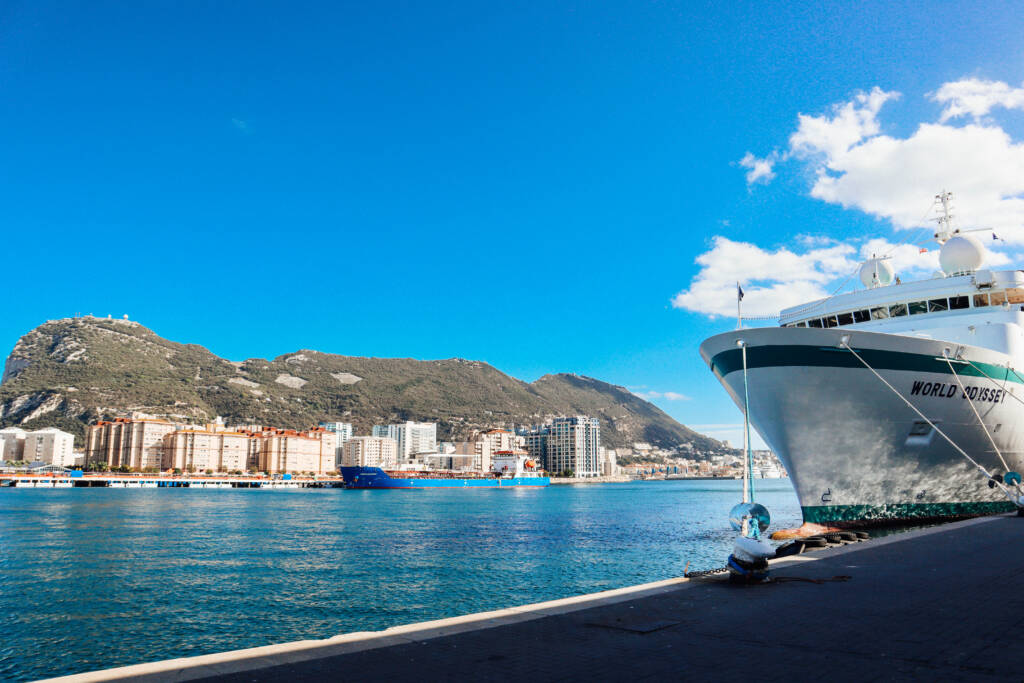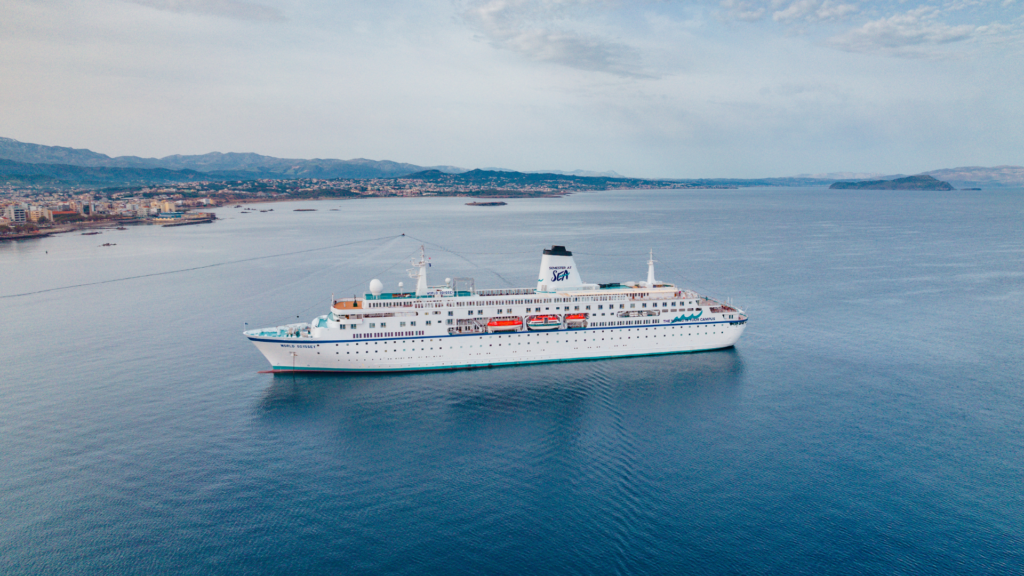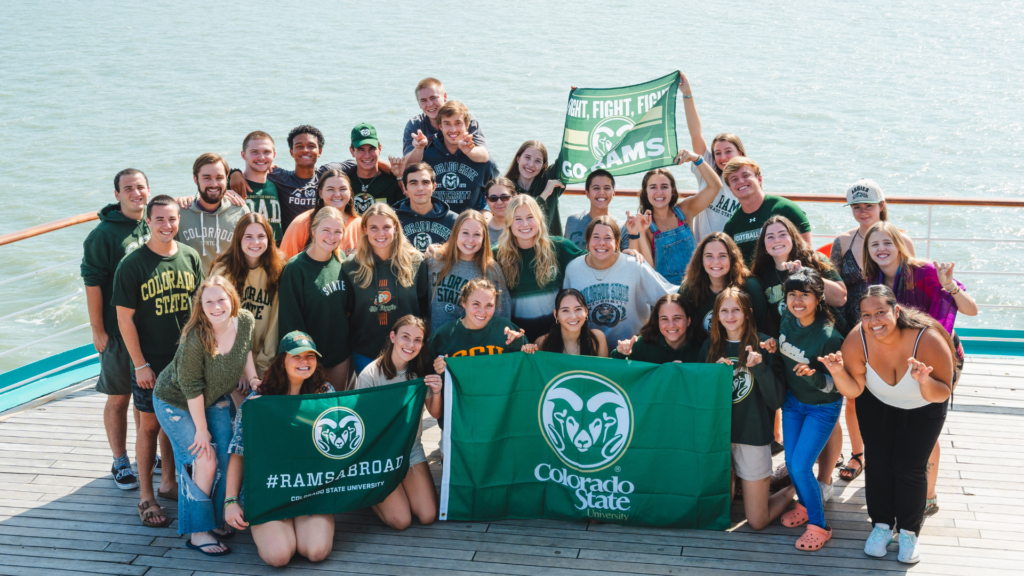Many of Semester at Sea’s programs in Ghana focused on connecting with locals and students did just that. Between homestays and service visits to local social enterprises, voyagers took the opportunity to engage with the community on a deeper level.
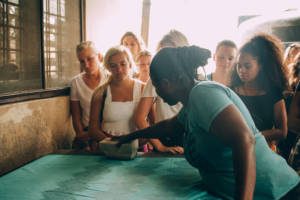
“As we’re on Semester at Sea, we’re always thinking about how we want to engage as global citizens,” said Lexy Roberts, Spring 2018 student. “Sometimes on the ship it feels like you’re getting more out of these in-country experiences than you’re giving back to the community and so my experience in Ghana was a nice way to see how other people have had those same experiences and how they’ve gotten involved and empowered others out of that.”
Roberts visited a local NGO and Fair Trade Organization Global Mamas as part of her Gender and Society field class. Global Mamas was founded in 2003 by a former Peace Corps volunteer as a way to empower local Ghanaian women by promoting financial independence and prosperity through the creation of handmade textiles.
“It was so cool to see the immediate results of the mission of Global Mamas where 30 to 35 percent of the proceeds going back into the women’s wages,” Roberts said. “It was really inspiring to see that her passion from her time in the Peace Corps was still evident and the dedication to doing things ethically even when facing challenges like Ghanian bureaucracy and that really resonated with me.”
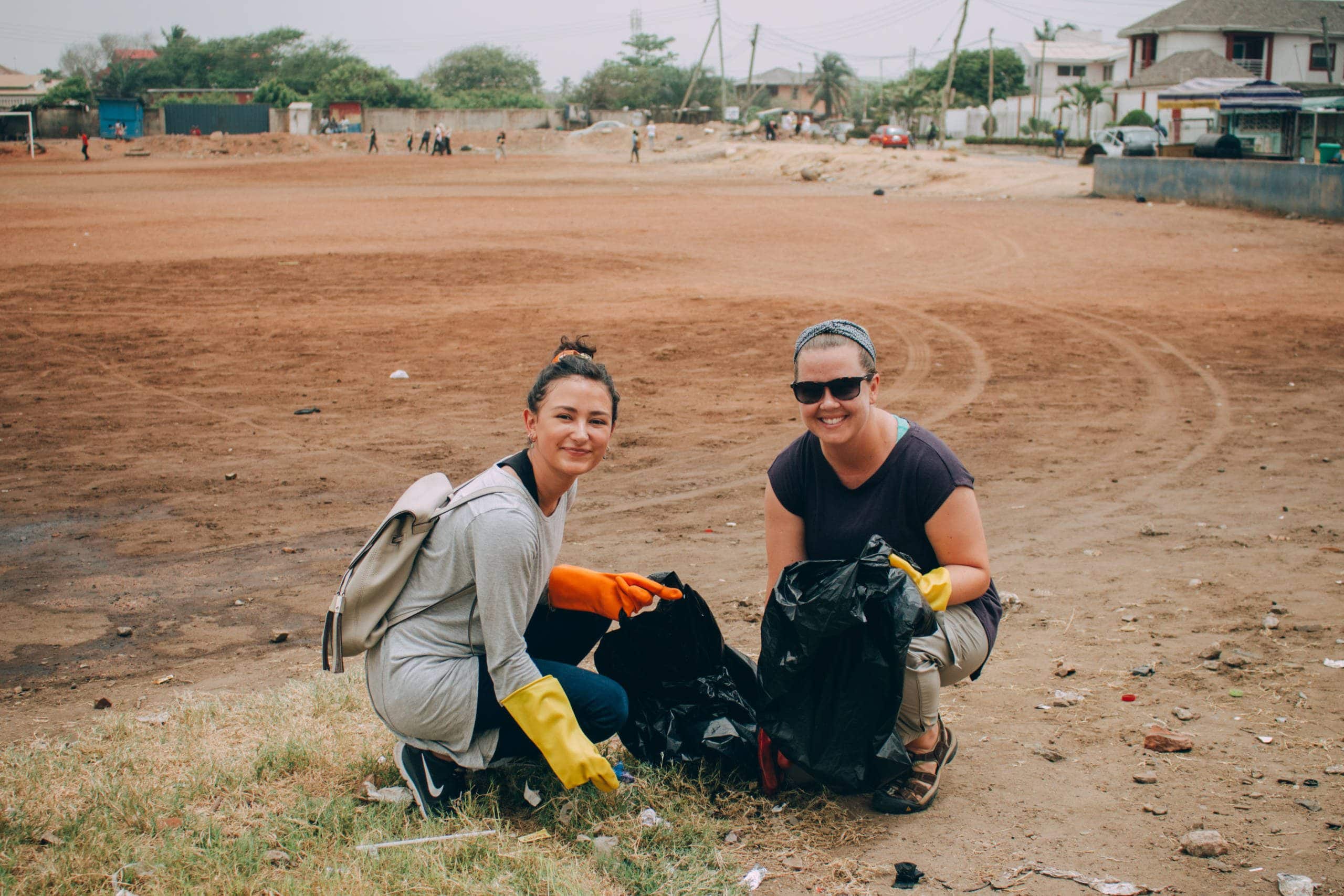
As field classes took a closer look at community engagement, other field programs participated in service projects and nonprofit visits. Trashy Bags, another local NGO located in Accra, strives to help solve waste management issues in Ghana by making artisanal products out of littered plastic bags.
“I thought it was nice to see a local social enterprise that’s really doing good, quality work in their community and we all really loved seeing how all the bags were put together,” said Kate Lilly, Assistant Director of Field Programs. “For me, the biggest takeaway was just seeing local innovation.”
Voyagers also had the chance to visit the Stingless Bee Project in Takoradi, a social enterprise aimed at equipping local farmers with an alternative source of income: harvesting honey. With 600 different species of stingless bees found in Ghana, taking advantage of this resource has been helpful in adding another skill to farmers’ repertoire.
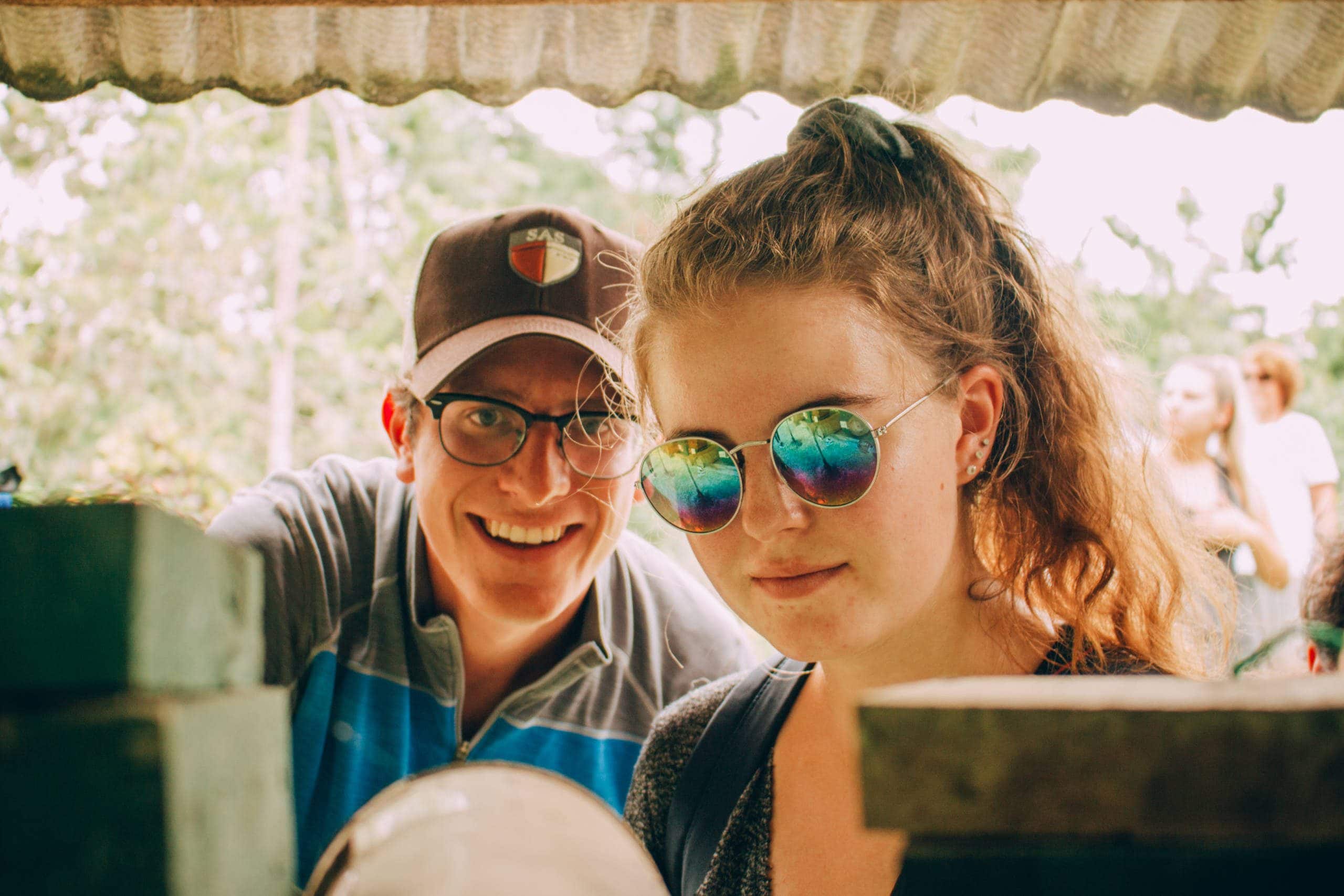
“Not only do the members of this project travel into the jungle to find colonies for conservation and research, but the project also organizes beekeeping training workshops for individuals in the surrounding community,” said Andie McKinnon, voyager who participated in the program. “It was so wonderful to observe this great organization and taste some honey.”
The visits to these different organizations gave voyagers hope and inspiration and ultimately led to more thought and discussion about how to use their experiences after their voyage.
“Overall, I thought it was a really phenomenal experience that gave a tangible understanding about what success in social entrepreneurship looks like,” Roberts said.
